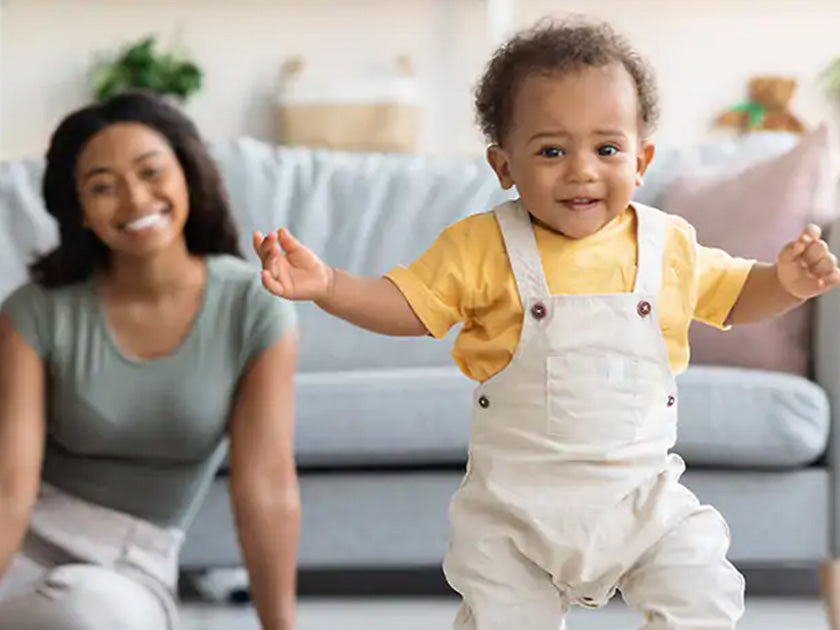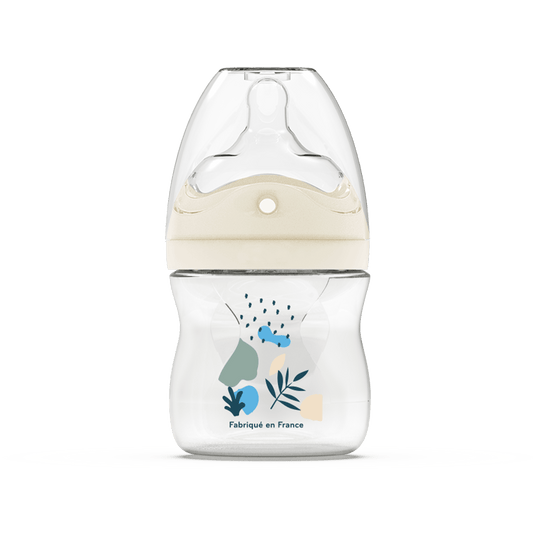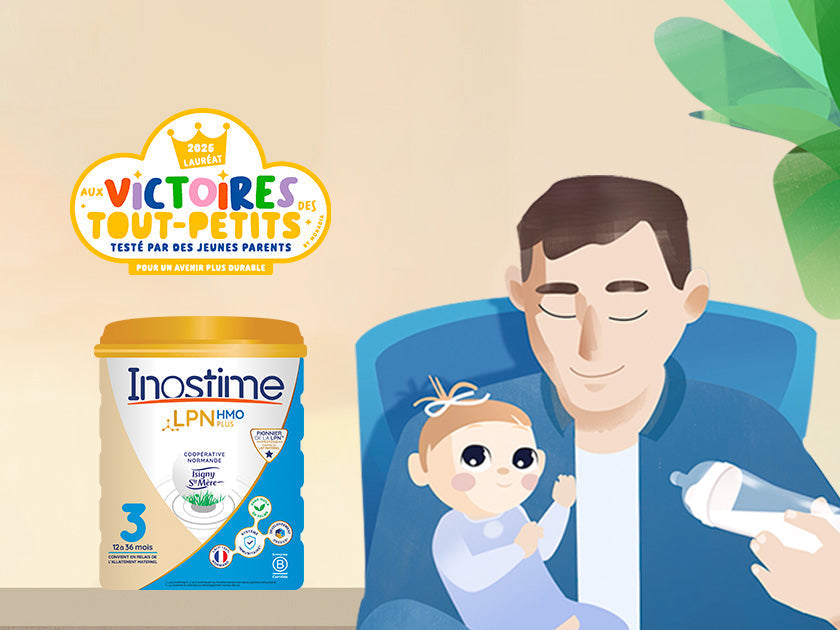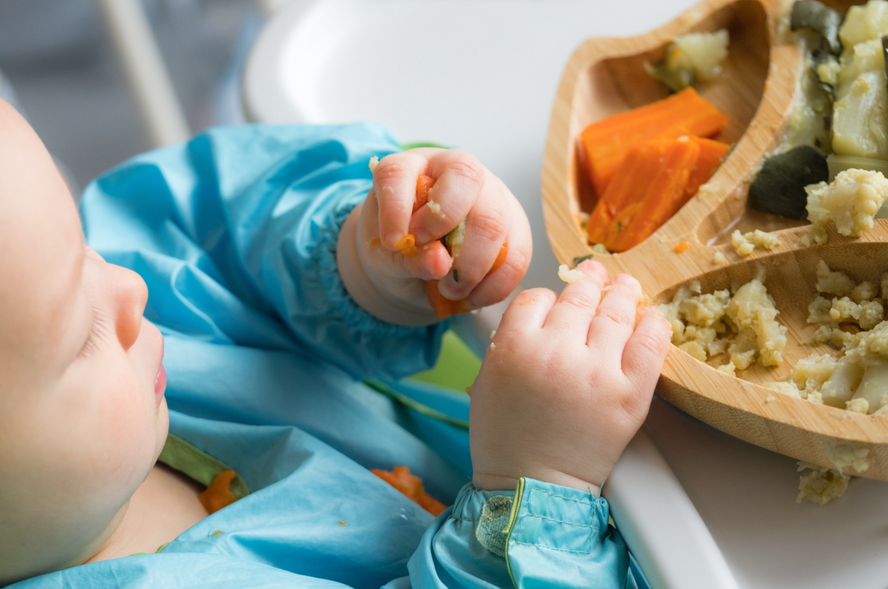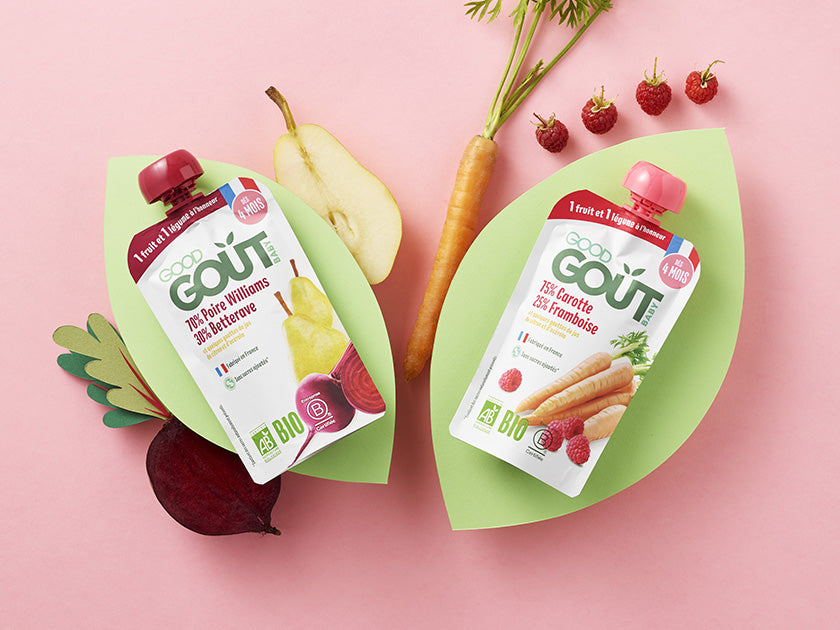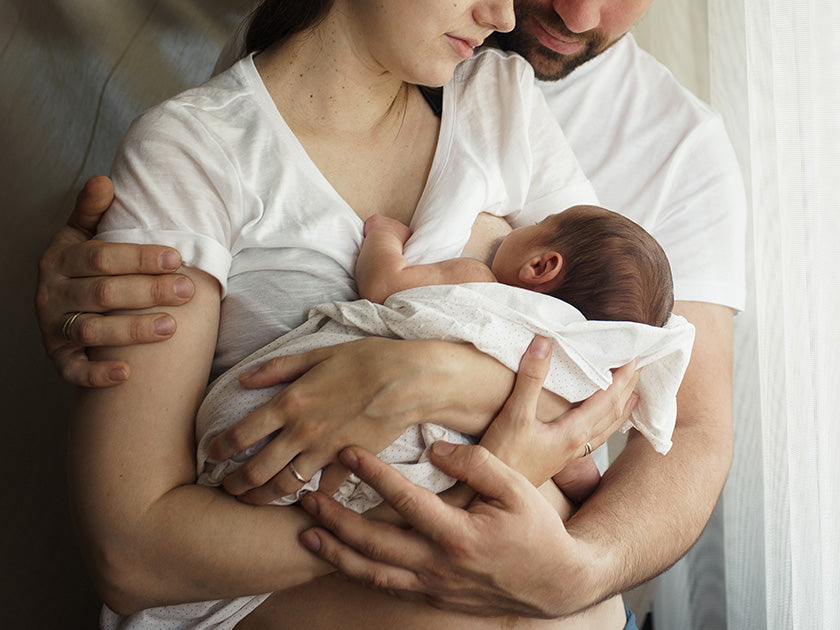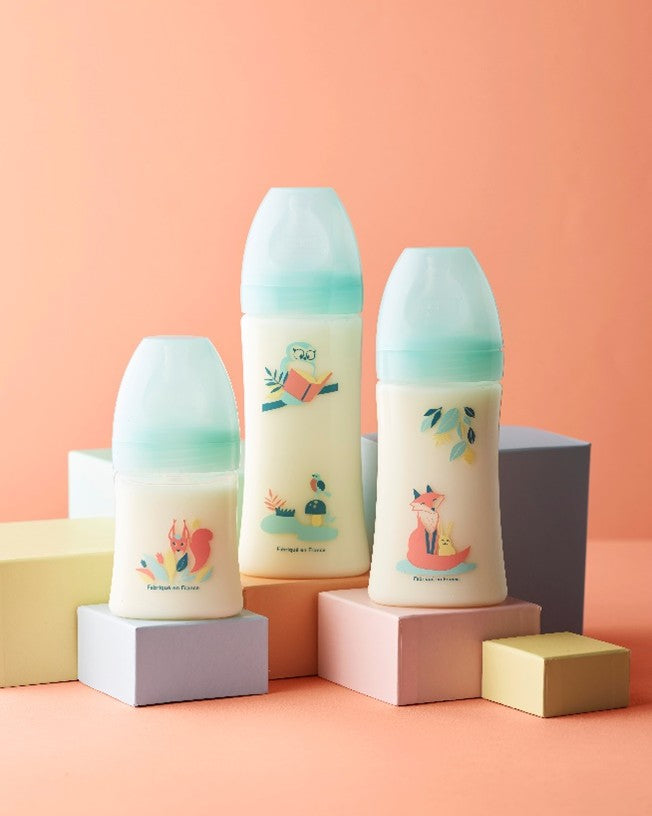Do you know the major milestones in your baby's psychomotor development between the ages of 0 and 2? We'll explain all of this in this article!
Baby's psychomotor development: The major stages from 0 to 2 years
During his first two years of life, your baby will develop his motor and mental abilities at high speed! From archaic reflexes to the discovery of his body , including his first steps and first words , he will never cease to surprise you. At Biostime, this subject fascinates us and we will share with you all our knowledge on the psychomotor development of babies between 0 and 2 years old .
What is psychomotor development? 1,2
Psychomotor development combines psychological development (intellectual, sensory, emotional, behavioral) and motor development (posture, motor skills, coordination). This is the process that will allow your baby to discover the positions and movements that will lead him to walking. This development is particularly important in infants and toddlers , because it is a period of life when many acquisitions are made.
We often distinguish four groups in psychomotor development: motor and postural acquisitions, language acquisitions, manual acquisitions and oculomotor and reaction acquisitions.
What are the stages of a baby's psychomotor development between 0 and 2 years old?
Before giving you the main stages of psychomotor development, it is important to remember that each baby develops at their own pace . Not all stages are achieved at a specific age, so don't worry if your child doesn't fill in all the boxes at a given age!
From birth to 3 months 2
At birth, the baby has archaic reflexes1, which are involuntary and automatic movements that appeared during fetal life: he squeezes his hand when you place his finger in his palm and he walks when he is held upright. These reflexes will disappear to give way to reflexes from 2 months . He can lift his head while lying on his stomach, he follows with his eyes an object or a person who moves near him and begins to babble. Around 3 months , he can reach out to an object and shake it for a few seconds.
From 3 to 6 months 3
He holds his head up, he laughs out loud when you interact with him, he learns to use his hands which allows him to discover the different parts of his body. He pedals with his legs and moves his arms in a more coordinated way. He can grab an object voluntarily, shake it and put it in his mouth. He loves to imitate you, smiles at his reflection in the mirror and expresses himself in syllable form. At 6 months , the back/stomach roll generally appears and he is able to pass an object from one hand to the other.
From 6 to 9 months 4
Between 6 and 9 months , your child learns to sit up, which shows the progression of his muscle tone. He turns from stomach to back and begins to crawl. This allows him to explore his environment more easily. It is also the appearance of the "thumb-index pinch", a very important stage in your baby's psychomotor development since he can grasp small objects and become more dexterous. He discovers that he can act on objects and understands simple sentences.
Between 9 and 12 months 5
Your child crawls, walks on all fours and between 9 and 12 months , he will slowly learn to stand. He can even sometimes move sideways while holding onto furniture. Don't force anything , he must explore alone! He points with his index finger and says goodbye with his hand, he asks to hold his spoon alone, he says his first words.
Between 12 and 18 months 6
Your baby's psychomotor development is centered around the acquisition of walking and movement in general. Independent walking is acquired around 15 months , so don't worry if your child doesn't walk before 18 months! He climbs the stairs with help and becomes more and more independent. He stacks and fits simple shapes, he scribbles: his fine motor skills continue to develop.
Between 18 and 24 months 6.7
At 18 months, he can associate 2 words and quote a few familiar images. He runs and climbs everywhere! And actively participates in undressing himself. And around 2 years old , he is able to step over small obstacles or throw a ball. In terms of fine motor skills, he can perform more complex tasks such as screwing/unscrewing or drawing. This is a period when social interactions are more intense and his language is enriched. As parents, you will be able to promote your baby's psychomotor development by stimulating him and providing him with an environment suitable for exploration. But always letting him do it alone and at his own pace!
To your stories!
Did you know the major stages of babies' psychomotor development? Come tell us your story or ask your questions at contact@biostime.fr or by private message on Instagram @biostime.inostime! All this will no longer hold any secrets for you!
Sources:
- Dr. Zennaki, A. Normal and Pathological Psychomotor Development of the Child. 2019. Available here
- Mpedia. [Online] The psychomotor development of children from birth to 3 months [Accessed 04/10/2023] Available here
- Mpedia. [Online] The psychomotor development of children aged 3-6 months. [Accessed 04/10/2023] Available here
- Mpedia. [Online] Psychomotor development of children aged 6-9 months. [Accessed 04/10/2023] Available here
- Mpedia. [Online] Psychomotor development of children aged 9-12 months. [Accessed 04/10/2023] Available here
- Godot, S. (2016). The major stages of a child's psychomotor development. Early childhood professionals [Accessed 04/10/2023] Available here
- PMI Aube en Champagne. Observing and supporting children's development from 0 to 6 years old. The major stages of psychomotor development. Available here
